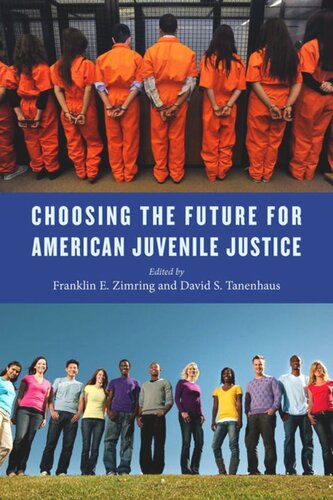

Most ebook files are in PDF format, so you can easily read them using various software such as Foxit Reader or directly on the Google Chrome browser.
Some ebook files are released by publishers in other formats such as .awz, .mobi, .epub, .fb2, etc. You may need to install specific software to read these formats on mobile/PC, such as Calibre.
Please read the tutorial at this link: https://ebookbell.com/faq
We offer FREE conversion to the popular formats you request; however, this may take some time. Therefore, right after payment, please email us, and we will try to provide the service as quickly as possible.
For some exceptional file formats or broken links (if any), please refrain from opening any disputes. Instead, email us first, and we will try to assist within a maximum of 6 hours.
EbookBell Team

5.0
100 reviewsThis
is a hopeful but complicated era for those with ambitions to reform the
juvenile courts and youth-serving public institutions in the United States. As advocates plea for major reforms, many fear the public backlash in
making dramatic changes. Choosing the Future for American Juvenile Justice
provides a look at the recent trends in juvenile justice as well as suggestions
for reforms and policy changes in the future. Should youth be treated as adults
when they break the law? How can youth be deterred from crime? What factors
should be considered in how youth are punished?What role should the police have in schools?
This essential volume, edited by two of the leading
scholars on juvenile justice, and with contributors who are among the key
experts on each issue, the volume focuses on the most pressing issues of the
day: the impact of neuroscience on our understanding of brain development and
subsequent sentencing, the relationship of schools and the police, the issue of
the school-to-prison pipeline, the impact of immigration, the privacy of juvenile records, and the need for national
policies—including registration requirements--for juvenile sex offenders. Choosing
the Future for American Juvenile Justice is not only a timely collection, based
on the most current research, but also a forward-thinking volume that
anticipates the needs for substantive and future changes in juvenile justice.